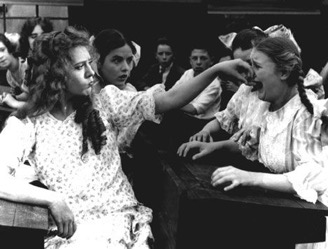
Director: Eric R. Dahlen, Ph.D.
Relational Aggression in College Students
04/22/14 Aggression

Research conducted at the Anger and Traffic Psychology Lab has focused on contributing to the growing literature on relational aggression in college students. Below is a summary of three recent studies conducted at the lab.
1. Czar, Dahlen, Bullock, and Nicholson (2011) explored the potential role of psychopathic personality traits in relational aggression among college students. Both primary and secondary psychopathic traits predicted relational aggression, and these relationships did not vary by gender. This suggests that psychopathic traits (e.g., a lack of empathy or remorse, dishonesty, impulsivity, antisocial behavior), known to predict overt aggression, may also be relevant to understanding relational aggression.
2. Prather, Dahlen, Nicholson, and Bullock-Yowell (2012) found that male and female college students reported engaging in similar levels of relational aggression in their dating relationships. Students with traditional (as opposed to egalitarian) sex role attitudes were more likely to engage in dating relational aggression, regardless of gender. In addition, the acceptance of couple violence predicted dating relational aggression over and above trait anger and sex role attitudes. Taken together, the results suggest that college students who experience more frequent and intense anger than their peers, hold traditional sex role attitudes, and are more accepting of intimate partner violence are more likely to commit acts of relational aggression in their dating relationships.
3. Dahlen, Czar, Prather, and Dyess (2013) found that college students who described themselves as more relationally aggression reported higher levels of anxiety, depression, anger, loneliness, academic burnout, and the misuse of alcohol. The correlates of relational victimization were similar, suggesting that both relational aggression and victimization can be disruptive to college students' social and emotional functioning. Dahlen and colleagues (2013) also found that anxiety, trait anger, and personal problems related to alcohol use predicted relational aggression in peer relationships while taking students' gender, race, and experiences with relational victimization into account.
